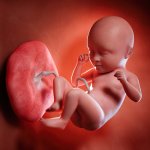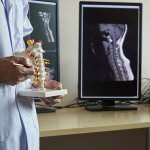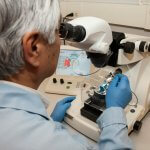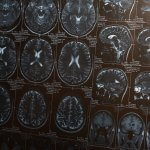We’re continuing our support of National Heart Awareness Month as we look at congenital heart disease throughout this week and how stem cells could offer CHD patients hope.
Congenital heart disease is general term for a range of birth defects which affect the way the heart works. Congenital heart disease affects approximately 9 in every 1,000 babies born in the UK making it one of the most common types of birth defect [1].
Generally the causes of congenital heart are unknown but there are certain things known to increase the risk including:
• Down’s Syndrome and other genetic conditions
• Rubella and certain other infections during pregnancy
• Diabetes; poor management of type 1 and type 2 diabetes in pregnancy
• Alcohol abuse during pregnancy
• Taking certain medications in pregnancy, including ibuprofen [2]
Down’s syndrome is the most common cause of congenital heart defects however there are steps women can take before and during pregnancy to minimise the risk of their baby developing a congenital heart defect. These can include making sure their immunisations are up to date, avoiding alcohol, managing diabetes effectively and avoiding certain medications.
Congenital heart defects can be diagnosed during pregnancy so armed with the information that the diagnosis brings, parents can plan in advance and make the choice to bank their child’s cord blood to give them access to stem cell therapies and clinical trials. Congenital heart defects can range from a small hole in the heart which may heal itself with time or be as severe as half of the heart not being there at all.
Congenital heart disease refers to a range of congenital heart defects; each defect affects the heart differently:
Total anomalous pulmonary venous connection
Transposition of the great arteries
The symptoms of congenital heart defects can vary, however, the general symptoms to look out for are:
• excessive sweating
• extreme tiredness and fatigue
• poor feeding
• rapid heartbeat
• rapid breathing
• shortness of breath
• chest pain
• a blue tinge to the skin (cyanosis)
• clubbed fingernails [3]
It is important to seek medical advice immediately if you think someone you know may have a congenital heart defect.
Stem cells are being used in a range of ways to try and find effective treatments for congenital heart defects including tissue engineered replacement valves to the use of cord blood to try and strengthen heart muscle of those born with hypoplastic left heart syndrome. Over the course of the week we will look at stem cells and congenital heart disease in more detail.
If you have other concerns about congenital heart disease or would like more information, please consult your GP or midwife.
[1] http://www.nhs.uk/Conditions/Congenital-heart-disease/Pages/Introduction.aspx
[2] http://www.nhs.uk/Conditions/Congenital-heart-disease/Pages/Causes.aspx
[3] http://www.nhs.uk/Conditions/Congenital-heart-disease/Pages/Symptoms.aspx









